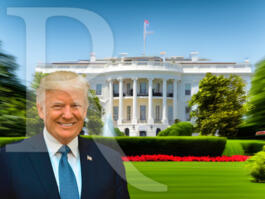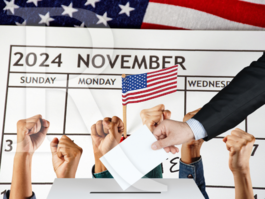Double-Dip Learning Curve
A Commentary By Tony Blankley
In one of the least needed reassurances in modern political history, President Obama's top political man David Plouffe, "told Democrats late last week that the White House would not suffer from overconfidence. 'What I don't want to suggest is that we're sitting around and thinking everything is great,' he said."
With the White House's own economists predicting 9 percent or worse unemployment on Election Day, the president at about 39 percent job approval, college grads unable to find jobs, a quarter of American homes under water, no credible White House policy or strategy for changing things -- and with most non-institutionalized Americans convinced we are in a recession that is going to get much worse -- it is surpassing odd that Plouffe was worried that his fellow Democrats might think the president and his men believed everything to be hunky-dory.
And yet, if it is not overconfidence driving White House strategy, what is? If they were not overconfident, wouldn't they be changing their policies, staff and strategies -- as James Carville screamed they ought to? Carville says to the White House: "Panic!" And the White House responds: "What -- me worry? But we are not overconfident."
After the November 2010 election rout, many observers (not me) thought they observed a rising learning curve in the White House. The president agreed to sign into law the extension of the Bush tax cuts -- with the White House even conceding that one shouldn't raise taxes during a recession or, from their rhetorical posture -- one shouldn't raise taxes during the early stages of a recovery that is not yet sufficiently robust.
Yet in the president's recent new "jobs" policy announcement, over $400 billion in new taxes was called for to "pay for" over $400 billion of Keynesian growth injection (not to be confused with the banned word: stimulus).
Given that this administration believes in the Keynesian principle of replacing a slumped private-sector aggregate demand with public sector moneys, why would the president now be calling to raise taxes during an "insufficiently robust early stage of recovery?"
According to the actual John Keynes, when an economy experiences contraction of private-sector aggregate demand, the government should both: spend more government money -- borrowed if necessary -- and lower taxes.
Thus, the White House's decision to raise spending and raise taxes is neither Keynesian nor rational. It is however, similar to its decision in 2009 to only stimulate the economy by $800 billion. At the time, I (and some others) publicly argued that if the president was following Keynesian policy, then the logic of that policy required that the stimulus should be in the vicinity of $2 trillion dollars -- not less than $1 trillion -- to replace the more than $2 trillion dollars in lost private sector aggregate demand.
Since then, while most of the public (and most of us conservatives) have argued that the stimulus did not work, the White House has made the argument that things would have been much worse if they hadn't enacted the stimulus plan -- thus implicitly conceding that if they had stimulated more in 2009, the economy would be better than it is now.
So what can one deduce has been the White House policy reasoning these last two and a half years? First, in early 2009, provide Keynesian stimulus to the economy, but not enough to gain robust growth. Second, in late 2010, don't raise taxes for fear of inducing further insufficiently robust growth. Third, in middle 2011, raise taxes even though there remains insufficiently robust growth. No wonder the left is as baffled, flummoxed and frustrated, as is --for different reasons -- the right.
It would appear that the White House's learning curve is paralleling the economy: flat-lining with the risk of a double dip.
Despite all reason to the contrary, it may be that Plouffe really was defensive, that he and his team really are overconfident. Perhaps, despite everything, they feel no need to experiment or change an iota in their flat-lining policy proscriptions.
Perhaps, rather than trying to change the economy or the world, they are confidently guided by the expectation that the Republicans simply will chose an unelectable nominee and solve all the White House's problems. Blanche Dubois, in Tennessee William's play "Streetcar Named Desire," expressed that strategy in another way: "I have always depended on the kindness of strangers."
If I were the White House, I would not rely on the kindness of the GOP strangers. I would remind them that Blanche Dubois recited that strategy as she was being sedated and led off to a mental hospital.
Rasmussen Reports is a media company specializing in the collection, publication and distribution of public opinion information.
We conduct public opinion polls on a variety of topics to inform our audience on events in the news and other topics of interest. To ensure editorial control and independence, we pay for the polls ourselves and generate revenue through the sale of subscriptions, sponsorships, and advertising. Nightly polling on politics, business and lifestyle topics provides the content to update the Rasmussen Reports web site many times each day. If it's in the news, it's in our polls. Additionally, the data drives a daily update newsletter and various media outlets across the country.
Some information, including the Rasmussen Reports daily Presidential Tracking Poll and commentaries are available for free to the general public. Subscriptions are available for $4.95 a month or 34.95 a year that provide subscribers with exclusive access to more than 20 stories per week on upcoming elections, consumer confidence, and issues that affect us all. For those who are really into the numbers, Platinum Members can review demographic crosstabs and a full history of our data.
To learn more about our methodology, click here.



